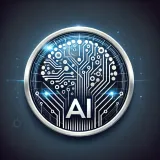AI Agents Are Here: How AutoGPT and BabyAGI Are Changing the Automation Game

Artificial intelligence is no longer confined to chatbots and simple automation tools. The emergence of AI agents like AutoGPT and BabyAGI is redefining how machines interact with tasks, perform complex problem-solving, and even exhibit autonomous decision-making. These self-improving AI agents promise to revolutionize industries, from software development to business operations, by reducing the need for human intervention in repetitive cognitive tasks.
What Are AutoGPT and BabyAGI?
AutoGPT and BabyAGI are generative AI models that extend beyond traditional AI applications like ChatGPT. These models operate as autonomous agents, capable of setting objectives, executing multi-step tasks, and even adapting based on results. Unlike conventional AI, which requires human prompting at every step, these agents can run independently, continuously iterating and improving their output.
For example, AutoGPT can generate marketing strategies, write and test code, conduct competitive research, and analyze large datasets with minimal oversight. Similarly, BabyAGI mimics human-like goal-setting by breaking down complex problems into manageable tasks and adjusting its approach dynamically.
The Impact on Work and Productivity
The potential for AI agents to disrupt the job market is significant. Businesses are already using these tools to automate content creation, customer service, legal research, and even investment analysis. By leveraging AutoGPT and BabyAGI, companies can reduce operational costs while accelerating decision-making.
However, this automation boom also raises concerns about workforce displacement. While AI agents create new opportunities in AI management and oversight, many white-collar jobs may face obsolescence as AI assumes a greater role in decision-making processes.
Challenges and Future Prospects
Despite their potential, AI agents are still in their infancy. They require fine-tuning to avoid errors, biases, and security risks. Additionally, ethical concerns regarding autonomous AI decision-making and data privacy remain unresolved.
As AutoGPT and BabyAGI continue to evolve, we are entering an era where AI is not just a tool but a partner in innovation. Whether this will lead to a more efficient workforce or a new wave of disruption depends on how businesses, governments, and society at large choose to adapt.




